Were Hitler and the National Socialists actually Socialist?
Review the evidence before making a decision...
Make someone’s day: Gift a subscription to your friends and family!
Ever since the October 7th Hamas terrorist attack in Israel, there has been a dramatic increase in political commentary on anti-semitism on the Left. It is obvious from the tone of those articles that the writers are puzzled and surprised by the advent of this “new” phenomenon. They clearly view anti-semitism as a phenomenon of the Right, particularly the Right-wing, and cannot imagine an anti-semite who is an avowed Socialist.
Underneath these pieces is a hidden assumption that Adolf Hitler, the premier anti-semite in modern history, was on the Right. And, therefore, Hitler was not a Socialist. It is an assumption that is rarely questioned.
But is this really the case?
Obviously, I do not need to give evidence that Hitler and the National Socialists were anti-Semites. No one disagrees with that.
The real question is: Was National Socialism a form of Socialism?
“Is there a nobler or more excellent kind of Socialism and is there a truer form of Democracy than this National Socialism which is so organized that through it each one among the millions of German boys is given the possibility of finding his way to the highest office in the nation, should it please Providence to come to his aid?”
Adolf Hitler – January 30, 1937, On National Socialism and World Relations speech in the German Reichstag
See also my other articles and podcasts on Ideology:
Why Ideologies Threaten Progress (Part 1 of 3-part podcast series)
Why ideologies fail (podcast)
Descent into a man-made Hell: Understanding modern Totalitarianism
Were Hitler and the National Socialists actually Socialist? (this article)
You might also be interested in reading my “From Poverty to Progress” book series:
A few introductory points
First I want to point out that there is no universally agreed-upon definition of Socialism. I think that it is fair to say that there are strict definitions and broader definitions.
“Germany’s economic policy is conducted exclusively in accordance with the interests of the German people. In this respect I am a fanatical socialist, one who has ever in mind the interests of all his people.”
Adolf Hitler – February 24, 1941, speech on the 21st anniversary of the National Socialist Party
A strict definition
Many people who uphold a strict definition believe that Marxist flavors are the only true Socialists. They therefore define socialism as “government ownership of the means of production.” By this standard, National Socialism is clearly not socialism. In the National Socialist regime, there were still plenty of privately owned companies.
The main problem with this strict definition is that it disqualifies virtually every political movement that called itself “Socialist” except for Communist parties and regimes. All other ideologies are therefore not considered true socialism, including Social Democracy, Democratic Socialism, Peronism, Anarchism, Libertarian Socialism, Syndicalism, and many others. None of them ever established full government ownership of the means of production, and many of them did not want to do so.
Besides, there is more that binds us to Bolshevism than separates us from it. There is, above all, genuine, revolutionary feeling, which is alive everywhere in Russia except where there are Jewish Marxists. I have always made allowance for this circumstance, and given orders that former Communists are to be admitted to the party at once. The petit bourgeois Social-Democrat and the trade-union boss will never make a National Socialist, but the Communist always will.
— Adolf Hitler
Marxists are not the only socialists
The idea of Socialism was around long before Karl Marx arrived on the scene, and many additional versions of socialism sprouted up after his death. Marx called all of his Socialist predecessors, “Utopian Socialists,” while he called his own views “Scientific Socialism.” I will let you decide how scientific his beliefs were.
There is also a large number of people on the Left who effectively define Socialism as “whatever I believe in.” I would ask those people “What regime today or in history most closely approximates your view of Socialism?”
In my experience, they either pick a Scandinavian nation (which I do not believe is Socialist) or cannot pick any regime. And if they pick a Scandinavian nation, they typically know very little about the actual economic and social policies of that nation. In particular, they are not aware of how capitalistic Scandinavian economies are.
The vast majority of such people cannot identify a single regime that most closely approximates their view of Socialism. Most likely, those who refuse to pick any regime, do not want to be held accountable for the results of that regime. They only want to focus on the idea of Socialism rather than what happens when the idea is implemented in reality. Their Socialism only exists between their ears.
A broader definition
If we use a broader definition and try to include the vast majority of political movements that called themselves “Socialist”, then we must conclude that there are an enormous variety of types of Socialism. This linked article gives you some idea of the variety of movements that call themselves Socialist.
I believe that “Socialism” is not really a single ideology; Socialism is actually a category of related ideologies. Those ideologies share certain characteristics but differ in other characteristics. And they are often very hostile to each other.
The problem becomes that it is very difficult to construct a viable definition of Socialism that includes the vast majority of movements that call themselves “Socialists” without also including National Socialism in it. Indeed, one can make the case that the National Socialists were more Socialist than the majority of the movements that called themselves Socialist.
“Socialism as the final concept of duty, the ethical duty of work, not just for oneself but also for one’s fellow man’s sake, and above all the principle: Common good before own good, a struggle against all parasitism and especially against easy and unearned income. And we were aware that in this fight we can rely on no one but our own people. We are convinced that socialism in the right sense will only be possible in nations and races that are Aryan, and there in the first place we hope for our own people and are convinced that socialism is inseparable from nationalism.”
Adolf Hitler - August 15, 1920, speech in Munich at the Hofbräuhaus.
But wasn’t Hitler on the Right?
Some fall back on the argument that the Socialists only include political movements on the Left, National Socialism was a movement on the Right, so therefore National Socialism was not Socialist. But when you ask those same people to define “Left,” they give some definition that is similar to a broad definition of Socialism.
So this is ultimately a circular argument.
“All the more so after the war, the German National Socialist state, which pursued this goal from the beginning, will tirelessly work for the realization of a program that will ultimately lead to a complete elimination of class differences and to the creation of a true socialist community.”
Adolf Hitler – March 21, 1943, speech for Heroes’ Memorial Day
But wasn’t Hitler a reactionary?
Others fall back on the argument that National Socialists were “reactionary”, so therefore it was not Socialist. The definition of a reactionary is a person who wants to go back to a society that existed in the past. But then those same people cannot identify a previous German society that shared similar characteristics with the National Socialist regime. Nor can they dispute the similarities to Communist regimes, which were indisputably revolutionary and Socialist.
So the entire “reactionary” argument falls apart.
“After all, that’s exactly why we call ourselves National Socialists! We want to start by implementing socialism in our nation among our Volk! It is not until the individual nations are socialist that they can address themselves to international socialism.”
“But we National Socialists wish precisely to attract all socialists, even the Communists; we wish to win them over from their international camp to the national one.”
Adolf Hitler (as quoted by Otto Wagener in Hitler: Memoirs of a Confidant)
So the argument that National Socialists were not Socialist must take one of two forms:
Communism with complete government ownership of the means of production is the only true form of Socialism, or
Terminological gymnastics that primarily rely on the widespread ignorance of:
the actual beliefs of committed National Socialists
the actual economic policies implemented by the National Socialist regime.
the actual social policies implemented by the National Socialist regime.
Once one views all the evidence (listed below), it is clear that:
Adolf Hitler, the NSDAP party leaders, and their most ardent followers believed they were Socialists (regardless of whether you believe it).
The National Socialist regime was a radical departure from anything that had ever existed before or after in German history.
The closest approximations to the National Socialist regime were Communist regimes which were indisputably Socialist.
The National Socialist regime established sweeping interventions in the economy and expansive social programs that were greater in scope than virtually all non-Communist regimes in history.
If similar reforms had been implemented by another self-styled Socialist political party of the “Left,” no one would doubt that it was a major step towards implementing the ideals of Socialism.
So any broad definition of Socialism that includes the vast majority of political movements that call themselves “Socialist” must also include the National Socialists.
Why have I not heard this argument before?
Most traditional historians of the period do not believe that Hitler was a Socialist. It is important to point out, however, that relatively few of those historians have seriously examined the National Socialist economic and social policies.
Virtually all historians of the period focus on:
National Socialist ideology (and most dismiss it as incoherent ramblings)
Why voters supported the National Socialist German Workers Party (NSDAP), particularly in 1932
The establishment of the regime in 1933
World War II, or
The Holocaust.
Most historians of Hitler’s period are also left-of-center in their political views, so they are very uncomfortable with the facts that I list below. This makes these facts difficult to find in most books on Nazi Germany, the Nazis, and biographies of Adolf Hitler.
I am a German nationalist, that means I am openly committed to my Volkstrum. All of my thoughts and actions belong to it. I am a socialist. I see before me no class or rank, but rather a community of people who are connected by blood, united by language, and subject to the same collective fate.
— Adolf Hitler
Another problem is that historians correctly view National Socialism as anti-semitic and Nationalistic, but they typically see the remainder of Hitler’s ideas as an incoherent and jumbled mess. When you read through the evidence below, it is pretty clear that National Socialism was just as least as coherent as any other type of Socialism.
But aren’t they really Nazis?
Today virtually everyone uses the term “Nazi” as few are aware that Adolf Hitler, his followers, or Germans never used the term. They always called themselves “National Socialists.” The use of this term by Germans lasted up until 1945.
“Nazi” was a term adopted by non-Germans as a slur. It does not take too much imagination to realize that part of the reason that the term “Nazi” has been so widely adopted is that the term conveniently removes the term “Socialist” from the name.
Three different types of German Socialism
The reality is that between World War I and Hitler’s seizure of power, Germany was torn between three different types (or “flavors”) of Socialism:
The German people preferred the third option in 1932 because it was the most nationalistic flavor of socialism. Hitler’s anti-semitism came along for the ride.
“Socialism as the final concept of duty, the ethical duty of work, not just for oneself but also for one’s fellow man’s sake, and above all the principle: Common good before own good, a struggle against all parasitism and especially against easy and unearned income. And we were aware that in this fight we can rely on no one but our own people. We are convinced that socialism in the right sense will only be possible in nations and races that are Aryan, and there in the first place we hope for our own people and are convinced that socialism is inseparable from nationalism.”
Adolf Hitler – August 15, 1920, speech in Munich at the Hofbräuhaus.
Karl Marx preached a type of international Socialism based on class struggle. Hitler preached a type of National Socialism based on national struggle. They both were Socialists, but they believed in very different types of Socialism (although in practice their favored regimes strongly resembled each other). Ironically, Josef Stalin called his version of Socialism “Socialism in One Nation” to differentiate his views from Trotsky’s version of Socialism that promoted world revolution.
“What they hate is the Germany which sets a dangerous example for them, this social Germany. It is the Germany of a social labor legislation which they already hated before the World War and which they still hate today. It is the Germany of social welfare, of social equality, of the elimination of class differences—this is what they hate! They hate this Germany which in the course of seven years has labored to afford its Volksgenossen a decent life. They hate this Germany which has eliminated unemployment, which, in spite of all their wealth, they have not been able to eliminate. This Germany which grants its laborers decent housing—this is what they hate because they have a feeling their own peoples could be ‘infected’ thereby. They hate this Germany of social legislation, this Germany which celebrates the first of May as the day of honest labor.” –
Adolf Hitler - May 8, 1939, speech “Party Comrades! My German Volksgenossen!” at the Bürgerbräukeller in Munich
The evidence that Hitler was a Socialist
I have read dozens, perhaps even hundreds, of books on the subject of Nazi Germany and World War II, and I never put all the pieces together until quite recently. For a long time I resisted the obvious conclusion that National Socialism is a form of Socialism.
Once you see Hitler’s Socialism, however, you cannot unsee it. Here is just some of the most compelling evidence that Adolf Hitler and the National Socialists were, in fact, Socialist:
Hitler was a self-declared “National Socialist” from the early 1920s until his dying day and he meant it. His support for Socialism was a frequent topic of his speeches and informal discussions.
On July 10, 1921, Adolf Hitler quit the party when other members tried to drop the terms “Socialist” and “Worker” from the party name. Soon afterward, the party dropped the idea and begged him to rejoin. Hitler insisted that he would do so on the condition that he would become the undisputed leader of the party. The party caved, and he became known as “Fuhrer” for the rest of his life.The claim by many on the Left that Hitler was only “pretending to be a Socialist” is refuted by all the following:
If Hitler and the National Socialists were anti-Socialist, why on Earth would they “pretend to be a Socialist?” The argument makes no sense.
Another common claim is that Hitler was not a Socialist because he hated the Communists and Social Democrats. Yes, Hitler hated Communism and Social Democracy, but that is not evidence that Hitler was not a Socialist.
The hatred of the followers of one form of Socialism over all other forms of Socialism is common in history.
More on this later.Many top National Socialist leaders were former Communists or Socialists. According to Hitler himself, “90 percent of [the NSDAP] was made up by left-wing people” in the 1920s. This likely included Hitler himself.
Hitler served as a soldier’s delegate in the People’s State of Bavaria, a short-lived socialist state, in 1919. The regime was dominated by Kurt Eisner and the Independent Social Democratic party (USPD) which temporarily straddled the Social Democrats and the Communists.
Hitler also served as a soldier’s delegate in the Communist Bavaria Soviet Republic that was established immediately after the assassination of Kurt Eisner.
The “Freikorps” which the German Social Democrats ordered to suppress Communist revolutions were full of men who would become leaders in the National Socialist party.
This is typically deemed as proof that they were “right-wing”, but their work with the Social Democrats suggests otherwise.Throughout his career, Hitler repeatedly claimed that he was a supporter of the German Revolution of 1918-19 which overthrew the Kaiser and established the Weimar Republic. The German Social Democratic party (SPD) was the dominant party in the era. Hitler’s main complaint was that the revolution did not go far enough. He wanted to establish a more socialistic regime.
Hitler was always very evasive and secretive about his actions in 1919-20, likely because he wanted to cover up his earlier pro-Marxist political activities.
The official platform of the National Socialist German Workers Party (NSDAP in German) had several socialistic planks, many of which were implemented once they came into power:
Plank 11. That all unearned income, and all income that does not arise from work, be abolished.
Plank 12. Since every war imposes on the people fearful sacrifices in blood and treasure, all personal profit arising from the war must be regarded as treason to the people. We therefore demand the total confiscation of all war profits.
Plank 13. We demand the nationalization of all trusts.
Plank 14. We demand profit-sharing in large industries.
Plank15. We demand a generous increase in old-age pensions.
Plank 25. In order to carry out this program we demand: the creation of a strong central authority in the State, the unconditional authority by the political central parliament of the whole State and all its organizations.
The formation of professional committees and of committees representing the several estates of the realm, to ensure that the laws promulgated by the central authority shall be carried out by the federal states.
The National Socialists recruited heavily in Communist working-class neighborhoods because they knew that the two ideologies appealed to the same type of person.
Hitler was strongly anti-capitalist and this was a frequent subject of conversation for him. He sought different means to control capitalism than the other flavors of Socialism did, but he was equally anti-capitalist.
Hitler always believed that National Socialism was a revolutionary ideology rather than a conservative ideology. He had nothing but contempt for traditional conservatives, the Kaiser, and monarchists, and his regime abolished their parties after taking power.
Hitler and his followers called their seizure of power the “National Socialist Revolution.”
Hitler believed and repeatedly stated that National Socialism was a superior form of socialism to Marxist socialism because it integrated in German Nationalism. This is exactly why the ideology was so popular with the German people.
Hitler saw the Jews as the leaders and puppet masters of International Capitalism (as well as International Socialism). The Final Solution was an extreme form of “kill the capitalists.”
Struggle or “Kampf” (as in “Mein Kampf”, Hitler’s testament) was the dominant concept in both National Socialist ideology and Marxist ideology (as in “class struggle”). Interestingly, the same goes for Islamic Jihad, which is the Arab word for “struggle.”
Hitler used the word “Kampf” over and over, just like the Communists did. In this linked speech, it is various translated as “struggle” or “fight.”
Rather than the Communist and Socialist term “proletariat”, Hitler spoke of the German people or “Deutsche Volk,” which to him had much the same meaning. Hitler and the National Socialists believed in Socialism for all German people and against all other people.
The National Socialist regime adopted Socialist economic policies, which they called “Gleichshaltung” (coordination or synchronization in English). Gleichshaltung was similar to “nationalization” although most of the threatened companies were not taken over directly by the government.
Instead, the regime sought to control the “private” sector by:Abolition of property rights in the famous Reichstag Fire decree of Feb 28, 1933. These property rights were previously protected by the Weimar Constitution in Article 153. This enabled the National Socialist party to do whatever they chose with private companies.
Nationalization of the German national railway in 1937, the single most important means of transportation in the nation. The railway was critical to both German industry and the German military.
Highly targeted expropriations of individual corporations, including the famous Junkers Aircraft and Motor Works. This was to create a sense of panic among business owners as to what might happen to them if they did not cooperate with the Gleichshaltung.
Sending state auditors to examine all internal corporate accounting for the past few years. This was clearly an attempt to find accounting “errors” that could be used to justify extracting financial penalties in the amounts of millions of marks.
Wholesale takeover of companies by cronies within the National Socialist party.
For example, Herman Goering’s Reichswerke Hermann Goering was the largest corporation in Europe, and probably the world. At its peak, the company had over half a million workers. Even today with a much higher population, that would make the company the eighth largest company in the world.All large businesses were forced to join one of 13 centralized cartels that made it easier for National Socialist party officials to control rather than many small companies.
The regime had a Four Year Plan, reminiscent of the Five Year Plans in the Soviet Union.
Many companies were forced to participate in rearmament, where the government had much more control over demand. Granted the high profits from doing so made this an easy choice for most German industrialists.
Vastly increased number of regulations, particularly price controls, export/import controls, work hours, vacation time, and wage controls.
Centralized control over the distribution of goods, including most raw materials and parts that companies needed to manufacture goods.
Mass questionnaires were sent to businesses to collect information that enabled centralized controls by Kommissars.
Establishment of production quotas for businesses.
In his nightly “Table talk” monologues with the party leaders, Hitler frequently told them that after the war is won, the German economy should adopt far more Soviet-style government planning of the economy. Hitler clearly saw the current levels of private ownership as a temporary pragmatic concession necessary for the war effort.
The National Socialist regime also expanded the power of trade unions and Nazified them. No private trade unions were allowed.
The German Labor Front (DAF) was the largest trade union in the world at the time and one of the largest in world history. Almost half of all Germans were members of this one union.
The DAF played a significant role in controlling corporations, and its leadership was solely composed of National Socialist party members. The DAF played much the same role as Commissars in the Communist economies. This gave another means for National Socialists to control corporations without nationalizing them.The historical record is full of German business owners and managers complaining that they had no power to use their traditional authority. Every major decision needed to be approved by National Socialist party leaders in the government or the DAF.
The National Socialist Gleichshaltung was almost as thorough in taking over all the institutions of German civil society as Lenin and Stalin were in the Soviet Union. Few German institutions were free from the control of the National Socialist party.
Adolf Hitler and the National Socialists wanted to establish a Volksgemeinshaft (or People’s State) for all Germans, except Jews. The National Socialist regime established or expanded many social welfare programs that are similar in nature to the modern welfare state. Many of these programs were copied straight from the program of the German Social Democratic party.
Examples include:Highly progressive taxation that had the rich pay a much higher percentage of their income than the middle class and poor.
Heavily subsidized food, rent, clothing, coal for home heating, and recreation activities for the poor and working-class.
Rent controls
Price controls
Family and child tax credits
Marriage loans
Home furnishing allowances
Child-education allowances
Mass firing of Jews to create jobs for non-Jewish Germans. German companies were required to prove that they had no Jewish employees. Those that failed risked expropriation.
Farmers were also greatly affected by National Socialist policies:
Farmers had all their private debt collectivized. Farmers could no longer be repossessed or sold, meaning they had to remain farmers forever.
Farm produce prices were set by the government
Farms were subsidized by the government
Farms were told to shift production from meat and eggs to grain.
The result of all these regulations was a dramatic drop in farm production.
Foreign slave labor was widely used in German industry, and the practice was encouraged by the regime. This was similar to the Gulags of the Soviet Union and other Communist regimes.
The National Socialist regime used military conquest and expropriation of the resources of conquered nations as a means of distributing wealth to the German people. Much of that wealth went to ordinary German workers, farmers, soldiers, wives, and children. Rather than just expropriating from domestic capitalists, the National Socialists also expropriated from Jews and non-Germans.
Very similar to Karl Marx’s view that capitalism naturally led to proletarianization and shrinking profit, Hitler believed in “shrinking markets” which made it necessary for each nation to conquer the natural resources in other nations to survive. Marx and Lenin thought the inevitable result of capitalism was an international class war, while Hitler thought the inevitable result of capitalism was a military war between nations.
There is every reason to believe that Hitler planned to adopt even more socialistic economic policies if Germany had won World War II. Hitler understandably believed that armament production was more important in the short term than completing the Socialist economic revolution.
In Mein Kampf, Hitler made clear that he believed that it was first necessary to conquer the Soviet Union to give the German Volk the living space (“Lebensraum”) and natural resources for Germany to establish Socialism. In particular, he wanted the food from Ukraine and the oil from the Caucasus.
Confiscation of Jewish property was fully in line with the Socialist concept of expropriating capitalists. Hitler thought the Jews controlled international capitalism.
Hitler repeatedly expressed his admiration for Communists because they had a clear worldview (“Weltanschauung”) as opposed to what he deemed to be lesser ideologies. Hitler both admired and hated the rival ideology of Marxist Communism.
Though the DNVP, the largest German conservative party, temporarily allied with the National Socialists in 1932, the party was abolished soon after and its leaders played no significant role in the National Socialist regime.
No former-conservative politician played an important role in the National Socialist regime after 1933. Any conservatives who thought they could control Hitler quickly learned otherwise.
The Red color was one of the dominant colors (along with black) of National Socialist imagery and uniforms. Hitler deliberately chose that color because of its connotations of Revolutionary Socialism.
Nazi Germany and the Soviet Union were allies for the first two years of World War II. Yes, it was a temporary alliance of convenience, but it also was based on similar world views.
The dominant resistance to National Socialism within Germany after the party seized power was from the conservative generals in the German army.
The German Social Democratic party (SPD) was widely perceived as a Socialist party, perceived itself as a Socialist party, and implemented far less revolutionary and anti-capitalist policies than the National Socialists.
If the SPD was a Socialist party, then so was the NSDAP.The National Socialists addressed each other as comrades, just like the Social Democrats and Communists.
Most importantly, the National Socialist regime was very similar to Communist regimes in all of its major institutions.
No one single of the facts above proves that Adolf Hitler and the National Socialists were Socialists. Each is subject to interpretation. But taken as a whole, it is pretty difficult to see how one it does not lead one to accept the fact that they were Socialists.
Stop to think for a moment. If you did not know anything about Adolf Hitler and National Socialism and you read the list above, would you not immediately believe that we are discussing a Socialist ideology and Socialist regime?
I think that the answer is obvious.
For an in-depth read on all the above, I would recommend Rainier Zitelmann’s Hitler’s National Socialism. Unlike most historians, Zitelmann takes Hitler’s ideas seriously and does not dismiss them as contradictory rants just because those ideas do not fit into any other known ideology. Additional books are listed at the bottom.
For those who prefer videos, see the bottom of this post.
The limits of using the Left-Right spectrum
The fundamental problem is the assumption that because Hitler was on the Right, therefore he could not possibly be a Socialist. This is reason to see the limits of the Left-Right ideological spectrum, not evidence that Adolf Hitler and the National Socialists were not Socialists.
I personally believe that the terms “Left” and “Right” do not apply to Totalitarians, only to those who accept the broad limits of Liberal Democratic Capitalism. All Totalitarian ideologies and regimes share far more in common than differences between them. And those similarities include social and economic policies that are Socialist.
But the Nazis hated the Communists and the Socialist!
I am going to go into more detail on this because every discussion that I have on this subject with doubters seems to fall back to this point.
Yes, National Socialists hated the Communists, abolished their party, killed them, and imprisoned them.
Yes, National Socialists hated the Social Democrats, abolished their party, killed them, and imprisoned them.
But that is also true of Communist regimes. No Leftist of any sort is safe under a Communist regime if they do not tow the party line.
Pushing this line of thinking further, virtually every type of Socialist hates every other type of Socialist. The further Left you go, the more the hate.
The Soviet Union hated, arrested, put on show trial, and executed loyal Russian Communists and Communists from most European nations.
Communists hated Anarchists (just like Marx did) and vice versa.
Bolsheviks hated, arrested, and executed the Russian Mensheviks (the other faction of the Russian Social Democratic Labour party).
Bolsheviks hated the Russian Socialist Revolutionaries and vice versa. In 1917, the SR party split over into Left SRs and Right SRs over whether to ally with the Bolsheviks after the October coup. Then…
Bolsheviks hated, arrested, and executed the Right SRs. Then…
By 1918 Bolsheviks hated, arrested, and executed Left Socialists Revolutionaries (its former allies against the Right SRs)
Communists hated Social Democrats and vice versa.
Communists hated Trotskyites and vice versa. And there were plenty of other factions within the Soviet Communist party who hated each other.
Stalin killed them all.Khruschevites hated Maoists (after 1954) and vice versa.
Stalinists hated Maoists (after 1960) and vice versa.
Soviet Communists hated Yugoslavian Communists and vice versa.
Albanian Communists hated Yugoslavian Communists and vice versa.
Chinese Communists hated Vietnamese Communists (after going to war in 1979) and vice versa.
Cambodian Communists hated Vietnamese Communists (after going to war in 1977) and vice versa.
I could go on and on, but I think that you get the picture. Pick two authoritarian Socialist ideologies that existed in the same nation or nearby nations and you are very likely to find two groups who passionately hated each other. In many cases, this lead to systematic violence against the other.
They all hate each other because they are competitors in the same idea space. The National Socialists were no different.
The Verdict
So were Hitler and the National Socialist party anti-semitic?: YES
Were Hitler and the National Socialist party Socialists?: YES
Therefore, Hitler and the National Socialist party were anti-Semitic Socialists!
Any one of the points that I listed above can be explained away, but taken as a whole the evidence is very clear and consistent.
Were Hitler and the National Socialist party on the Left?: If you define Socialism as being on the Left, then YES (or perhaps the terms Left and Right do not apply to Totalitarians). As I said above, I believe the terms “Left” and “Right” are not meaningful for Totalitarian ideologies and regimes.
More evidence
If you want a deeper dive into this controversial historical issue, I suggest reading the following books:
Hitler’s National Socialism by Ranier Zitelmann (for understanding National Socialist ideology)
Here is the above historian in video format:
Hitler’s True Believers by Robert Gellately (for understanding National Socialist ideology)
Hitler's Beneficiaries: Plunder, Racial War, and the Nazi Welfare State by Gotz Aly (for National Socialist welfare policies)
Vampire Economy by Günter Reimann (for National Socialist economic policy)
If you prefer videos, I recommend that you watch the following videos which are full of references to the historical literature.
The first two are two different versions of the same video. You can choose between the “short” 43-minute version (top) or the full 5-hour (!) version is second.
Also another video about Hitler’s left-wing Socialist activities during the 1918-19 German Revolution:
You can also view a video that demonstrates that Karl Marx, who was undeniably a Socialist, was also anti-semitic (despite being an ethnic Jew himself!)
As usual, the rules for Commenting are:
Read the entire post first.
Given that my opinions are unorthodox, do not assume that you understand my point of view from the headlines or skimming the article.Stay on topic.
Be respectful and open to learning. I will do the same.
Anyone who violates the above rules may be blocked or have their comments deleted. Given the very controversial nature of this post, I am going to hold people to the rules strictly.
Commenting rules
The vast majority of my posts are open to comment by all. Within the constraints of my writing schedule, I enjoy having conversations with people with differing opinions as long as commenters follow these rules:
Read the entire post first.
Given that my opinions are unorthodox, do not assume that you understand my point of view from the headlines or skimming the article.Stay on topic.
Be respectful and open to learning. I will do the same.
Anyone who violates the above rules may be blocked or have their comments deleted. Because the topic of this article tends to attract particularly toxic comments, I will be strict in my interpretation going forward.
See also my other articles and podcasts on Ideology:
Why Ideologies Threaten Progress (Part 1 of 3-part podcast series)
Why ideologies fail (podcast)
Descent into a man-made Hell: Understanding modern Totalitarianism
You might also be interested in reading my “From Poverty to Progress” book series:








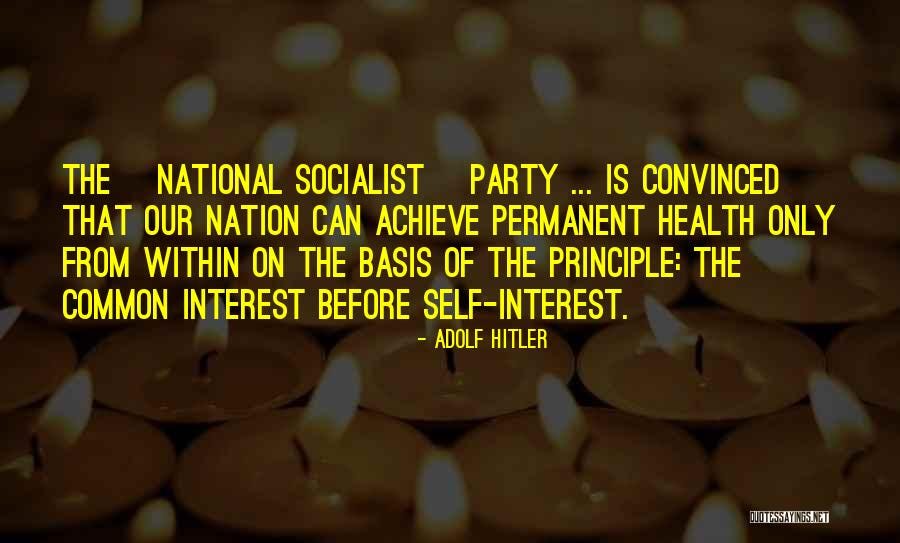
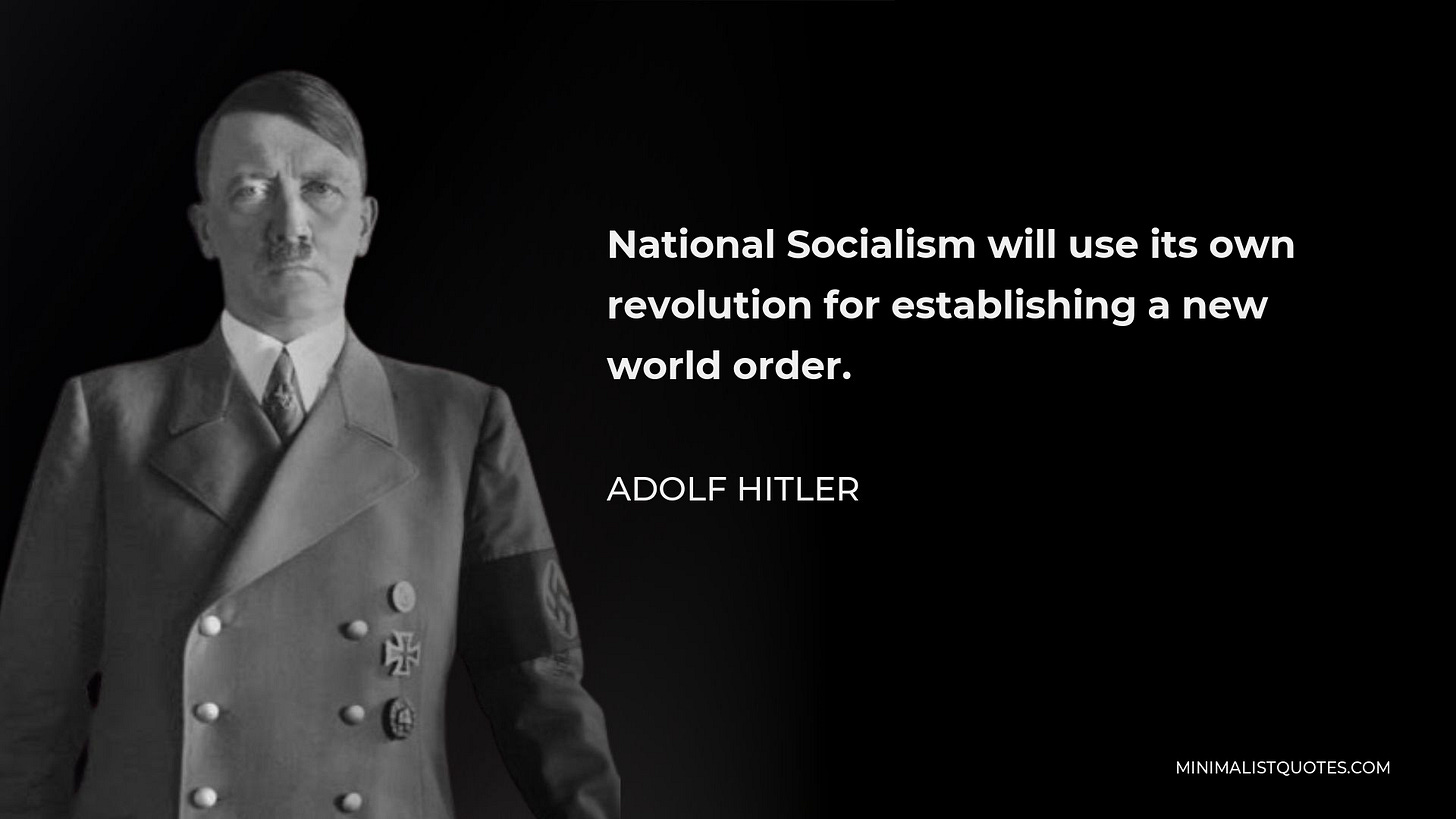
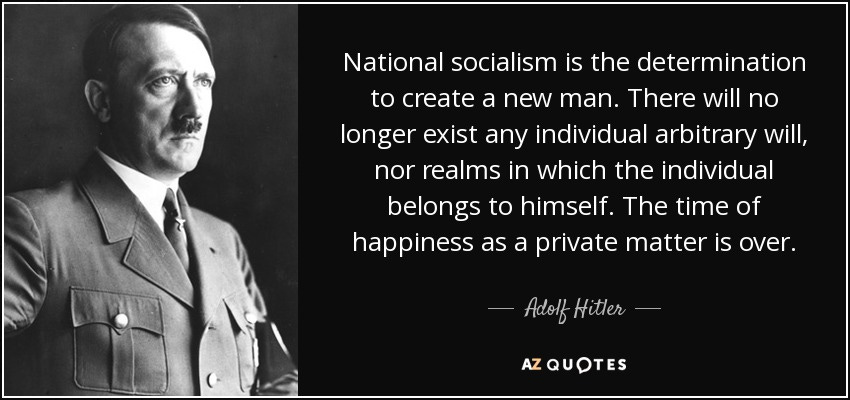


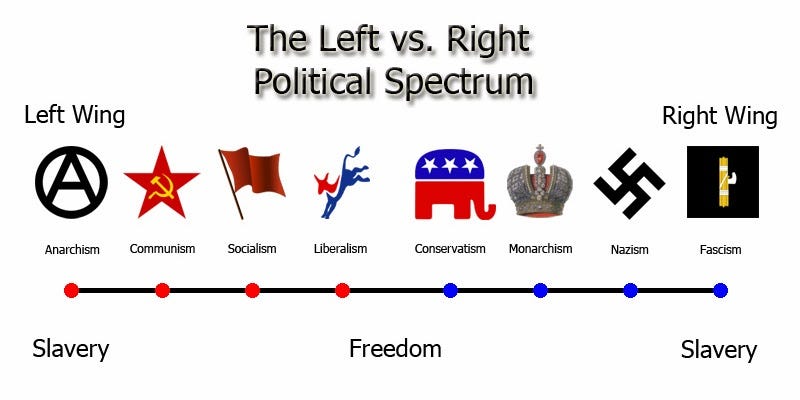


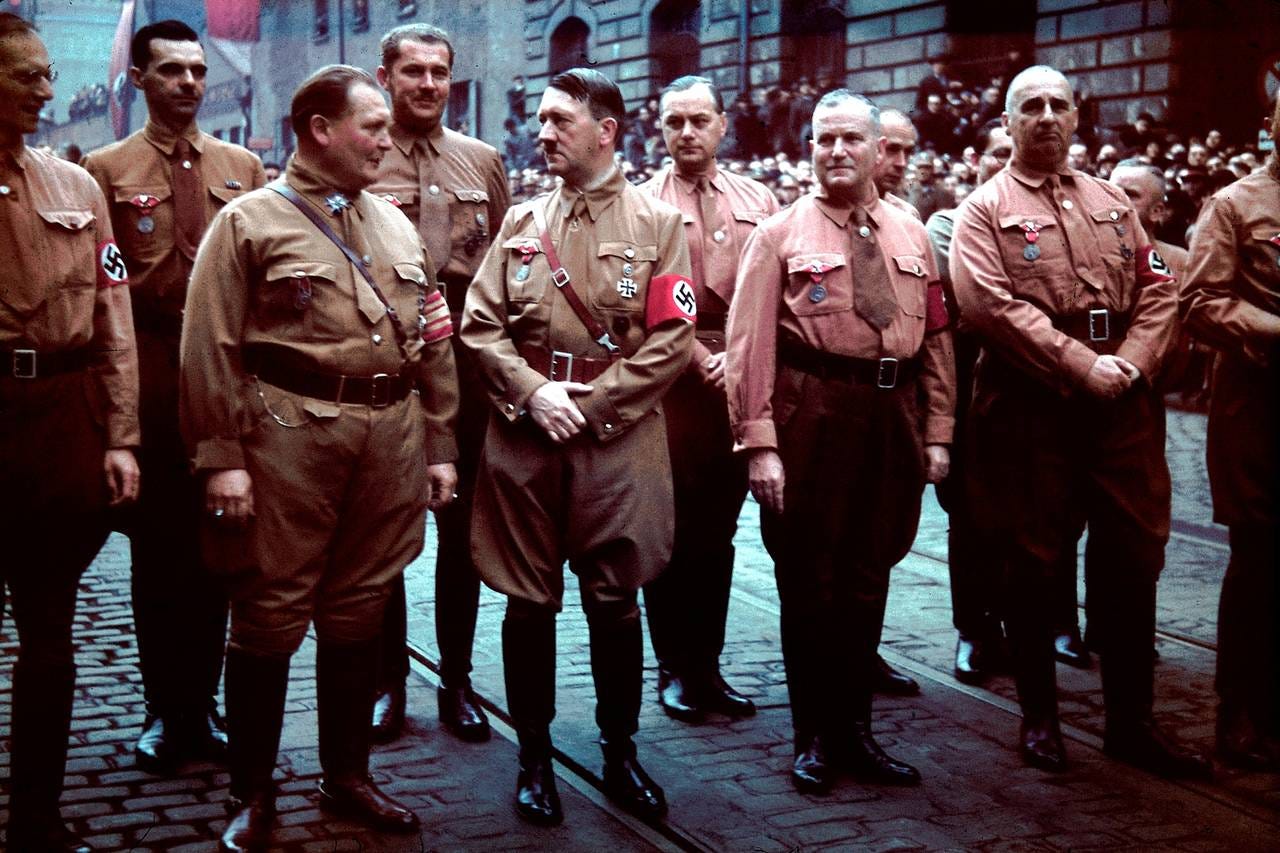
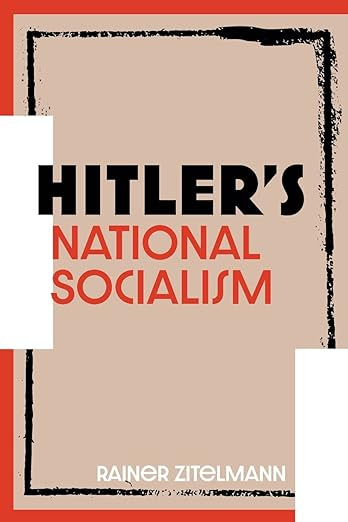

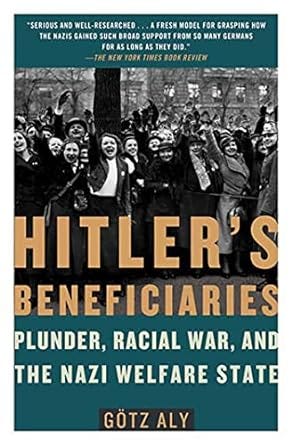
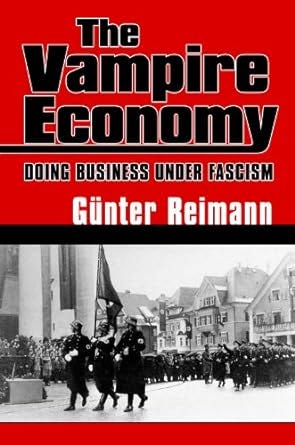
I've been saying something similar, with FAR FAR less detail and research for decades now.
This is by far the most comprehensive, most useful discussion of the topic I've seen.
This is a fantastic breakdown covering many of my own thoughts and my frustration at Nazis being labeled as right wing.